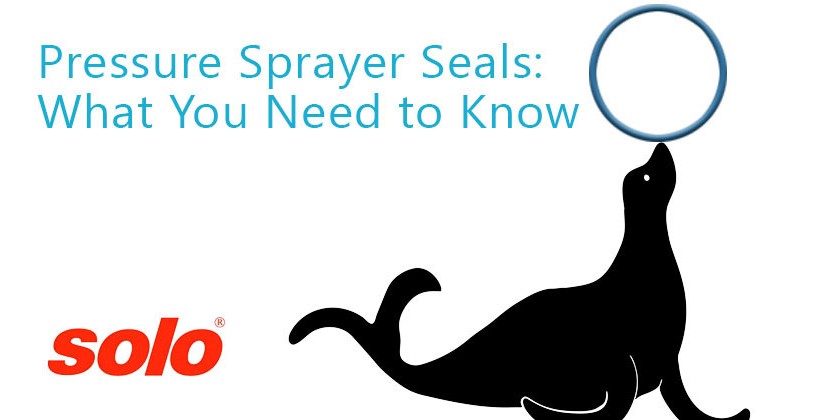
Take a trip to your local hardware store to look at pressure sprayers and you will quickly discover numerous choices. There are handheld and backpack styles, piston and diaphragm pump varieties, battery and hand pump types, and choices for the internal seals materials. With all of these options to choose from it can be difficult to know which sprayer is right for you!
Today we will address the different types of sprayer seals that are available and why it is an important consideration in the selection of your sprayer.
The interior seals inside of a pressure sprayer perform several important functions. They help the pumps to operate efficiently and keep liquids from dripping or leaking. Chemicals can be very caustic and can damage the internal seals. There are two types of seals available that should be paired to the type of chemicals you are using:
VITON SEALS (FKM SEALS)
Acidic cleaning solutions are commonly used for the commercial cleaning of buildings and in vehicle repair shops. They are also used to combat lime residues and viruses such as germs and bacteria. Acidic formulations are needed for the sanitary cleaning of medical facilities, baths, toilets, and in commercial kitchens, swimming pools, and saunas. Unfortunately, these solutions can be very hard on sprayer seals.
Viton seals are made to work with these aggressive solutions to prevent the liquids from causing mechanical damage to the pump system. Viton seals also work with solutions that contain oil or solvents, and are the best choice for solutions within the pH scale of 1-7.
EPDM SEALS (ETHYLENE PROPYLENE DIENE MONOMER)
Fat, oil and protein residues are stubborn substances in commercial kitchen and dining areas requiring the application of alkaline cleaning solutions. These solutions are also used for cleaning glass, degreasing components in the metal and automotive industries, and for cleaning carpets.
EPDM seals are the best choice for acidic solutions within the pH scale of 7-14.
Should the cleaning process demand less moisture and more dwell time, foaming sprayers are a good choice. Foaming sprayers are available with Viton or EPDM seals, based on the type of chemical you will be using in the sprayer.
To protect the seals, it is important NOT to leave or store chemicals in the sprayer after use. Rinsing the sprayer after every use keeps chemicals from “eating away” at the rubber, and ensures you get the longest life out of your sprayer.
A final note, when selecting a sprayer be sure to purchase a model from a reputable company that provides replacement parts. Replacing seals and pumps is easy and an affordable alternative to replacing an entire sprayer when all that is needed is replacing worn parts.
For information on Solo CLEANLine sprayers see: us.solo.global
